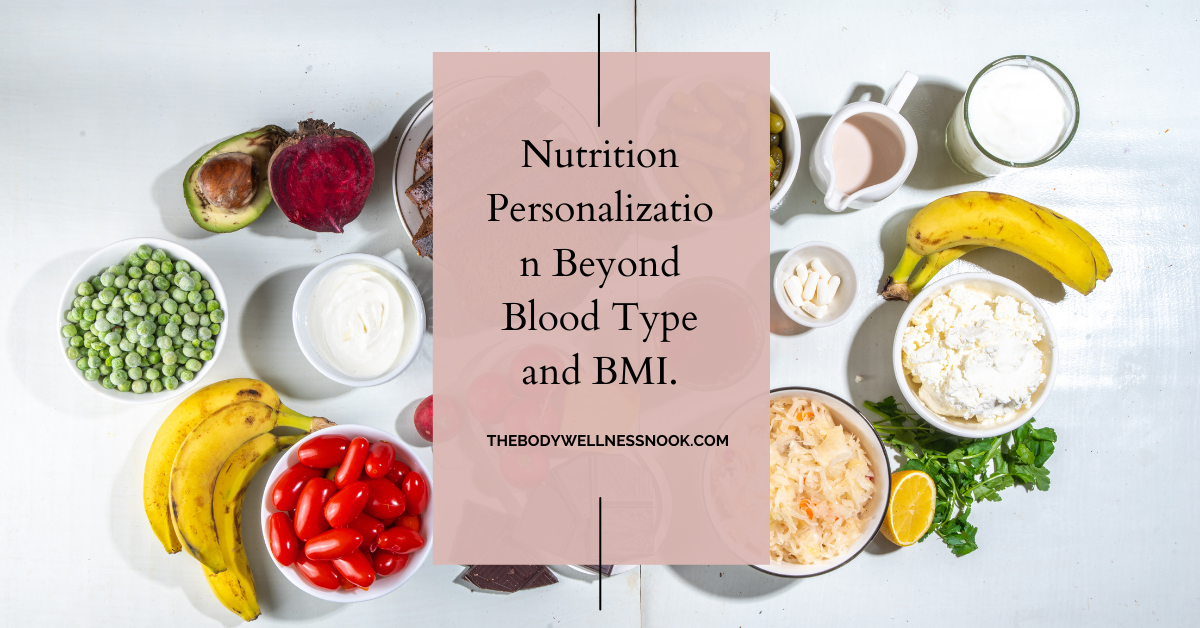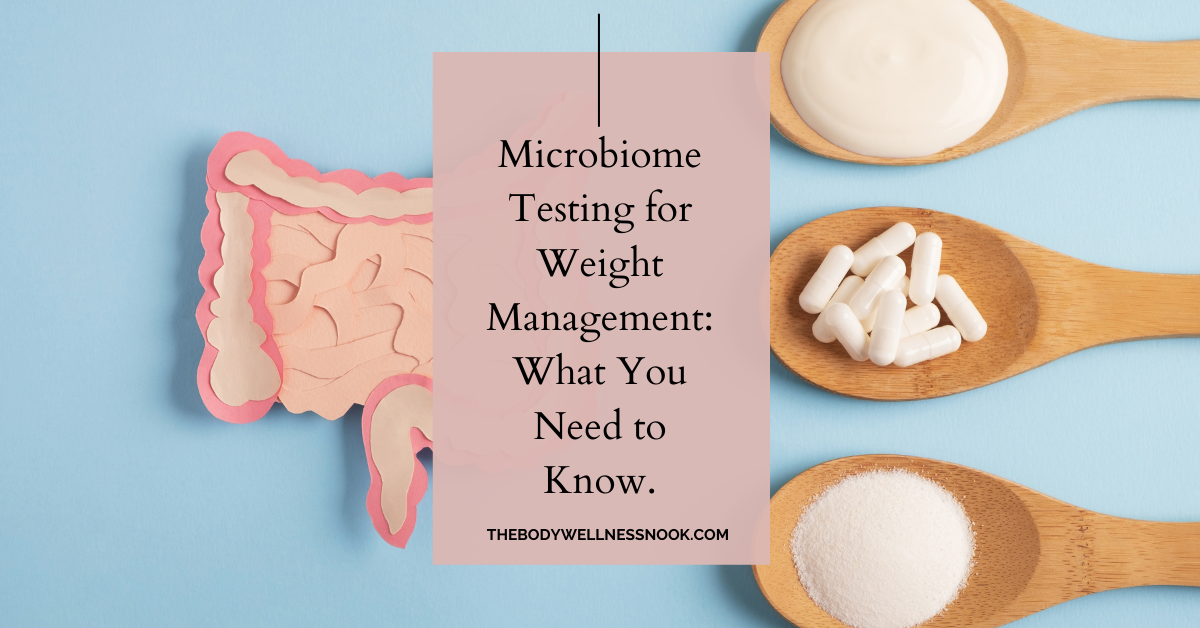Understanding Microbiome Testing
Why Bother with Microbiome Analysis?
Lately, everyone and their grandma has been chatting about the gut microbiome, turning it into the darling of the health world. So, what exactly are we gabbin’ about? We’re talking tiny creepers livin’ in your gut as part of your microbiome clan. They’re like backstage crew making sure digestion, your immune system, and basically everything else play out smoothly.
Why jump on the microbiome testing train, you ask? It’s kinda like digging up gossip on the little guys in your tummy from a stool sample. Figuring out who’s who can expose some culprits causing you grief like bloating, bathroom drama, or heartburn. You’ll get the lowdown on making smarter diet and lifestyle changes to keep your gut buddies happy. Think of it as a handy dandy tool for spiffing up personal gut vibes and getting your diet groove on.
How’s This Stuff Even Work?
Got a nosy side wondering how this shindig runs? Well, the whole ordeal is a cinch, and guess what? You ain’t gotta leave your couch.
DIY Sample Snagging
First up, they mail you this nifty kit to scoop… stuff… from your toilet. Hooray! Inside, there’s a sterile container and a spatula for, um, collection adventures, plus an envelope to mail it all back. Make sure you ace the instructions, ’cause we are aiming for no contamination disasters here.
Let the Lab Folks Take It Away
After you send off your special delivery to the lab, the smarties there do a DNA deep dive into your sample. They’re like microbial detectives, identifying all sorts of characters like bacteria, fungi, and viruses. Using geeky gadgets, they give you a perfect snapshot of the neighborhood in your gut.
And Then They Hit You with Recommendations
Post-analysis time! You get a spiffy report revealing the who’s who in your tummy. Some testing services even whip up custom-tailored advice for what you should be eating or doing. Want more tips on decoding results? Check out demystifying gut data.
Here’s a quick hit list of how it all goes down:
| Step | What It’s About |
|---|---|
| Sample Collection | Snag a stool sample using the cool kit |
| Laboratory Analysis | Get the DNA scoop on your microbial residents |
| Reporting | Dive into an in-depth gut microbial report |
| Recommendations | Get a checklist of belly-friendly lifestyle tips |
For even more reasons why you should care, peep our take on gut testing perks.
Getting your gut checked out through these tests can really open eyes about your insides. Make some sage lifestyle tweaks after, and you’ll be on your way to feelin’ better. We’re talkin’ more on how your tiny tenants pull at your body’s strings over in gut health insights and brain-gut connections.
Impacts of Gut Microbes
Health Effects of Imbalance
Every time I spend time digging into gut microbes, it’s like unearthing a treasure trove of insights. One thing’s crystal clear: mess up that balance and you’re inviting a whole host of health hiccups. We’re talking bloating so intense you’d swear you swallowed a balloon, heartburn that could rival the fiery depths, and those unexpected surprises in the bathroom department. Yep, the gut’s a world unto itself, and making sense of it all through something like microbiome testing is a game changer for anyone curious about gut business.
Now, an out-of-whack gut isn’t just about those pesky symptoms. We’re talking bigger stuff here, like sneaky signals of inflammatory nightmares or autoimmune mischief. Think inflammatory bowel stuff and the infamous Celiac disease. And just when you think it can’t get any more interesting, those little gut gremlins, or bacteria, whip up short-chain fatty acids. They’re like the unsung heroes, keeping the gut barrier tough and the fiery battles at bay (Cleveland Clinic).
Here’s a peek at what these gut troubles might look like:
| Symptom | Could Be Due To |
|---|---|
| Bloating | Too much gas, gut bug mayhem |
| Stool Changes | Flora on the fritz, digestion drama |
| Heartburn | Acid antics, inflamed gut |
Grasping these triggers gives us the upper hand on dialing things back to normal. If you’re craving a deeper dive, don’t miss out on our bit about personal microbiome optimization.
Gut Microbes and Symptoms
When the gut gang’s working in sync, they basically train my immune system like it’s running boot camp, getting it ready to tackle any bad guys that come knocking. Plus, they dabble in making brain chemicals like serotonin, which might explain those moods that swing like a pendulum when things aren’t right. This gut-brain partnership is the key to decoding a lot of mental and emotional puzzles.
Here are a few symptoms that scream gut chaos:
- Bloating: Could be that there’s a bacteria rave happening down there.
- Stool Changes: From running races to the tortoise pace in the loo, balance is everything.
- Heartburn: Sometimes, it’s the gut wall throwing a tantrum.
If I’m itching for answers, microbiome testing is a window into the gut’s secret life, offering clues like a detective on the case (Healthline). For those of us hungry for the details, breaking down these microbiome test results can show the road to better gut days.
Want the scoop on how gut health shakes hands with the immune system? Give our microbiome immune system piece a look.
Nailing the link between my inner workings and how I feel every day is key. Whether I’m into personalized nutrition science or managing those gut grumbles, giving some love to my gut buddies can lead me toward the health jackpot.
At-home Microbiome Testing
Suddenly, everyone’s buzzing about at-home microbiome testing, right? It’s like the DIY version of peeking into your gut’s party scene. So, let’s chat about how easy and handy these tests really are, and also, what they don’t quite cover.
Accessibility and Convenience
Okay, here’s the lowdown. At-home microbiome tests are like your personal detective examining the mix of tiny guys—think bacteria and viruses—living in your gut. And all this intel comes from, you guessed it, a stool sample! One major plus is how you can snag a test kit off the internet, do your thing at home, and pop it back to the lab. No doctor visits, no problem. This simplicity attracts folks curious about what’s up with their gut.
These tests can give you a snapshot of your gut’s microbial dance floor—which influences digestion, your immune system, and even how you feel mentally. (Curious about the brain connection? Check out our microbiome mental health section).
Limitations of Home Tests
But, hold your horses—there’s more to know. These home tests aren’t perfect. They don’t have FDA’s gold sticker and offer less juicy details than a hospital-lab setup.
| Limitation | What’s the Deal? |
|---|---|
| Not FDA-stamped | Results might not be as solid or deep as clinic ones. |
| Basic Info Only | It’s like getting the trailer, not the movie. |
| Not for Diagnosis | Just a heads-up—not to be your own doc here. |
| Chat with Pros | Seriously, talk with your doctor for real insights. |
So, while these tests are a fab start for understanding your gut on a surface level, they’re no substitute for the pros. Sharing your findings with a doc is smart—they’ll help make sense of the data and connect the dots if you’re feeling off.
Want to geek out on understanding your test results better? Our guide on microbiome test results interpretation is your go-to. And if you’re diving into personalized nutrition based on all this gut info, check out our sections on personalized nutrition science and gut microbiome health.
Cost Considerations
Thinking about trying out one of those fancy microbiome tests to check up on your gut health? Well, you better believe that not all tests are priced the same. You’ve got some choices here – are you going for the works or just keeping it simple? Your wallet definitely wants to know.
Average Test Cost
Right, let’s talk dollars and cents. If you’re staying cozy at home, these microbiome testing kits usually hit somewhere between $150 to $200. But, don’t be surprised if prices shift around based on how detailed the test is. Fancy ones asking for extra stuff like blood or spit might ask for more cash.
This table lays it out:
| Test Type | Cost Range |
|---|---|
| Basic Home Test | Under $100 |
| Average Home Test | $150 – $200 |
| Comprehensive Test | Up to $1,000 |
Now, if a doctor decides you really need one of these tests, insurance might jump in to help cover costs. Give your insurance company a ring to knock out any confusion.
Comprehensive vs. Basic Kits
Decisions, decisions. Basic or comprehensive kit: which team are you on? Basic’s no-nonsense. A stool sample and a broad look at your gut buddies. Comprehensive takes it up a notch – with extras like diet advice and sometimes blood or spit samples.
Here’s how the prices shake out with those extras:
| Kit Type | Average Cost | Features |
|---|---|---|
| Basic Kit | Under $100 | Stool sample, general microbiome glance |
| Average Kit | $150 – $200 | Stool sample, detailed analysis, basic diet tips |
| Comprehensive Kit | Up to $1,000 | Stool, blood & saliva, detailed dietary advice, health tracking extras |
For those comprehensive ones, they often throw in neat things like personalized diet science; some even have a subscription to keep tabs on your gut pals over time. If you’re tackling your test results, getting someone who knows their stuff to explain it can turn a jumble of numbers into actual sense (test results interpretation guidance).
Anyway, picking the right test is all about lining up your health goals and what you’re willing to cough up. By eyeing up the costs and goodies from each kit, you’ll be all set to make a decision that works for you and your gut.
Interpreting Test Results
When I took the plunge into figuring out my gut health with microbiome testing, I realized that making sense of the results was a big deal. So, here’s the scoop on reading these results and what they really mean for me.
Understanding Microbiome Data
Microbiome testing—whether my doc hooks me up or I DIY it—means sending off a poop sample to see what little critters are hanging out in my gut. The results usually involve a lineup of bacteria, percentages, and maybe some fancy charts. Let’s break it down:
| Microbiome Component | Description |
|---|---|
| Bacteria Types | The different little guys lurking in my digestive system. |
| Relative Abundance | How much of each type makes up the crowd. |
| Diversity | The mix-and-match variety; more diverse usually means happier guts (microbiome diversity). |
| Potential Pathogens | The bad apples that could mess with my health. |
| Beneficial Microbes | The good guys working for my body and mind. |
Checking out the abundance and diversity of my gut bacteria helps paint a picture of my health. If I’ve got loads of different bacteria, it’s often a good sign for my health.
These tests can also give me a heads-up on stuff like inflammatory conditions or autoimmune diseases, such as inflammatory bowel disease (IBD) or celiac. That poop sample can spill the beans on inflammation clues, which might help figure out food sensitivities and digestive drama.
Seeking Professional Guidance
Trying to crack my own microbiome code can be tricky business. For the full story, it’s best to bring in the pros. Doctors and microbiome whizzes can turn the jumble of data into real advice. Here’s how:
- Consult a Healthcare Provider: They’ll give a top-notch analysis and connect my microbiome data to my overall health. This is super important, like, if my gut’s throwing a fit.
- Use the Results for Personalized Nutrition: Knowing what bacteria I’ve got, I can fine-tune my eats to cheer on the good guys and crowd out the baddies. Check out our scoop on personalized nutrition science.
- Follow-up Testing: Keeping tabs with regular tests helps me see what changes over time, especially with big diet or lifestyle tweaks.
- Explore Specific Health Concerns: If I spot imbalance ties to certain conditions, it’s time to dig deeper medically. Gut health plays a part in everything from immunity (microbiome-immune system) to mental wellness (microbiome mental health).
Peeking into how gut bugs chat with my nervous system through the gut-brain axis could clue me in on serotonin and mood swings (Cleveland Clinic).
For more back-and-forth on what test results mean and getting the lowdown on personalized advice, I can check our article on microbiome test results interpretation.
Microbiome Overview
So you’re on this gut health kick, huh? Let’s muddle through the wacky world of microorganisms to get the lowdown on their role and the stuff that messes with them.
Role of Microorganisms
The microbiome is this wild jungle of tiny critters like bacteria, fungi, and even viruses hanging out in your body. They’ve set up shop everywhere from your skin to—yup, you guessed it—your gut (Genome.gov). Back in the day, folks thought all these bugs were bad news, but it turns out they’re like tiny unsung heroes, doing wonders for your health.
Here’s the dirt: good bacteria help chew up the food, teach your immune system to play nice, and hog space so the evil bacteria can’t crash the party. Some of these microbial pals also whip up short-chain fatty acids that act like bouncers at the club entrance, keeping the bad guys out of your bloodstream (Cleveland Clinic). Plus, they’re like the peacekeepers, waving the anti-inflammatory flag to maintain a zen gut vibe.
| Microorganism Type | What They Do |
|---|---|
| Bacteria | Help break down food, make vitamins, keep your gut in check |
| Viruses | Keep the microbial back-and-forth alive, hang out with the immune squad |
| Fungi | Break down the tough stuff like complex carbs |
| Parasites | Keep gut flora from going haywire |
These tiny creatures are also chatty types, keeping the lines open with your nervous system through the gut-brain connection. They’re behind the scenes making neurotransmitters like serotonin that deal with your mood swings and behavior.
Factors Influencing Microbiome
Your microbiome isn’t just sitting still; its setup changes depending on a whole bunch of stuff:
- Diet: What you chow down on really shakes up your gut. Pile on the fiber for the good guys, but fatty and sugary stuff? Not a fan.
- Exercise: Break a sweat, and your microbes cheer, boosting diversity and balance.
- Medications: Pop too many antibiotics, and you might turf out the good bacteria. If you’re loading up on meds, have a chit-chat with your doc.
- Environment: The air, water, and other stuff you’re exposed to can change the microbial squad.
- Hygiene: Going overboard on antibacterial soap could mean trouble for your skin and gut’s natural balance.
| Influences | Effects on Microbiome |
|---|---|
| Diet | Tweaks bacterial variety and quantity |
| Exercise | Fosters varied and balanced microbiomes |
| Medications | May zap the good bacteria |
| Environment | Brings in or reshuffles microbe crews |
| Hygiene | Might jostle natural balance |
Grabbing a handle on these factors shows how everyday choices and bits of life can shape your microbiome. By picking wisely, you can play tag with your gut health and dabble with personalized nutrition science to feel your best.
Looking to spruce up your microbiome game plan? Check out our pieces on personal microbiome optimization and personalized probiotic recommendations.
Don’t forget, getting clued up on your microbiome sets the stage for making smart health moves. Get the scoop on interpreting your microbiome test results and start leveling up your gut game.
Gut Microbiome Insights
When you take a peek at microbiome testing benefits, it’s a game-changer to grasp how big of a deal your gut microbiome really is for your health. Your gut isn’t just a place for food to hang out; it’s home to a bustling community of trillions of microbes like bacteria, viruses, and fun little fungi. These tiny tenants work together in ways that can seriously shake up how your brain and immune system operate.
Gut-Brain Connection
Ever find yourself asking why your mood takes a nosedive when your stomach’s doing the cha-cha? Meet the gut-brain connection. The party in your gut communicates with your brain via this fancy route called the gut-brain axis. This relationship is responsible for influencing all kinds of things like your mood swings, catching some Z’s, and even how you feel pain. Some of these gut bugs have the talent to generate or instigate the creation of mood-regulating chemicals like serotonin, zipping messages right up to your noggin.
Scientists are all over this subject, diving into how our gut community might play a part in mental health issues like anxiety and depression. If this curiosity tickles your fancy, grab more details from our write-up on microbiome mental health.
Immune System Influence
Your gut microbiome is like a superhero for your immune system. The good microbes down there are basically training camp instructors, teaching your body how to spot and fight off unwelcome germs. For instance, they produce neat stuff called short-chain fatty acids (SCFAs) that bolster the gut barrier, keeping the riff-raff out of your bloodstream. They also help calm down itchy, inflammatory reactions in the gut (Cleveland Clinic).
These SCFAs also make sure your immune system doesn’t get too judgey or aggressive towards your own body by encouraging the creation of smart, peacekeeping cells known as regulatory T-cells. This little dance of balance in your gut proves why a happy, diverse microbiome is your health’s best mate. For tips on achieving that balance, check out our guide on personalized probiotic recommendations.
| Component | Role in Immune System |
|---|---|
| Beneficial Microbes | Train immune response |
| Short-Chain Fatty Acids | Protect gut barrier, mediate inflammation |
| Regulatory T-Cells | Prevent immune overreactions |
Grasping the fullness of your gut microbiome health shows how it interlinks with your brain and immune system, offering fresh perspectives on keeping you fit and fine. Microbiome tests are the secret weapon for personalizing your diet and lifestyle to suit your unique body blueprint. Want to make sense of your test results? Don’t forget to swing by our handy guide on microbiome test results interpretation.
External Factors
Let’s talk about some big movers and shakers in the gut stage: what you eat, where you hang out, and the various substances you’re exposed to. All these can change the scene in your belly, which basically decides how you’re feeling and functioning. Let’s break it down a bit.
Impact of Diet and Environment
The stuff that ends up on my plate can turn into a dance party for the good guys in my gut. These little warriors, the bacteria that is, are on a mission to train my immune army to tackle the nasty invaders and keep my gut walls strong so no bad stuff slips through (Cleveland Clinic). If I munch on a rainbow—a.k.a. fruits, veggies, and the wholesome grains—I’m giving a high-five to those helpful bugs down there.
Adding a splash of food variety can ramp up microbiome diversity, which is key to feeling my best. On the flip side, if I lean on the processed and sugary side of the buffet table, I’m basically frowning on my gut, messing up its balance—hello, dysbiosis.
Living in a place with clean air and smoke-free spaces is a win for my micro pals. Whether it’s gritty air or the smoke of a cigarette, they can all throw a major wrench in my gut works, sparking unwanted inflammation (Cleveland Clinic).
Effects of Toxins and Medications
Those pesky toxins floating around, like pesticides and pollution, along with some meds, can seriously mess up my gut’s groove. If I’m hanging around these irritants too much, my gut bugs might start to riot, leading to all sorts of health hiccups.
Take environmental nasties, like smoke and certain sprays—they can totally shake up the microbial lineup in my gut (Cleveland Clinic). Consistent exposure isn’t fun for my gut buddies, possibly changing how they work for me.
Now about meds, especially antibiotics and acid blockers—they have a real knack for giving my gut a hard time. Antibiotics might play hero by wiping out bad bacteria, but they aren’t good at playing favorites and can leave my gut a bit unbalanced, needing some personalized probiotic recommendations to get back on track. Acid blockers, meanwhile, mess with the acidity in my gut, shaking things up for my microbial team.
Here’s a quick gut-check on how these players impact my microbiota:
| Factor | Impact on Gut Microbiota |
|---|---|
| Environmental Toxins | Throws off the microbiome balance, might spark inflammation |
| Tobacco Smoke | Rabble-rouser, likely causing dysbiosis |
| Antibiotics | Eliminates both destructive and helpful bacteria, causing imbalance |
| Acid Blockers | Changes pH levels, disrupting microbial peace |
So, it’s clear that what’s going on outside is echoing inside me, especially in terms of my gut health. Keeping my diet interesting, cutting down toxic exposure, and being smart about meds can keep my gut world spinning just right. Dive deeper into how lifestyle choices roll over to my gut health in my read on microbiome lifestyle factors.







